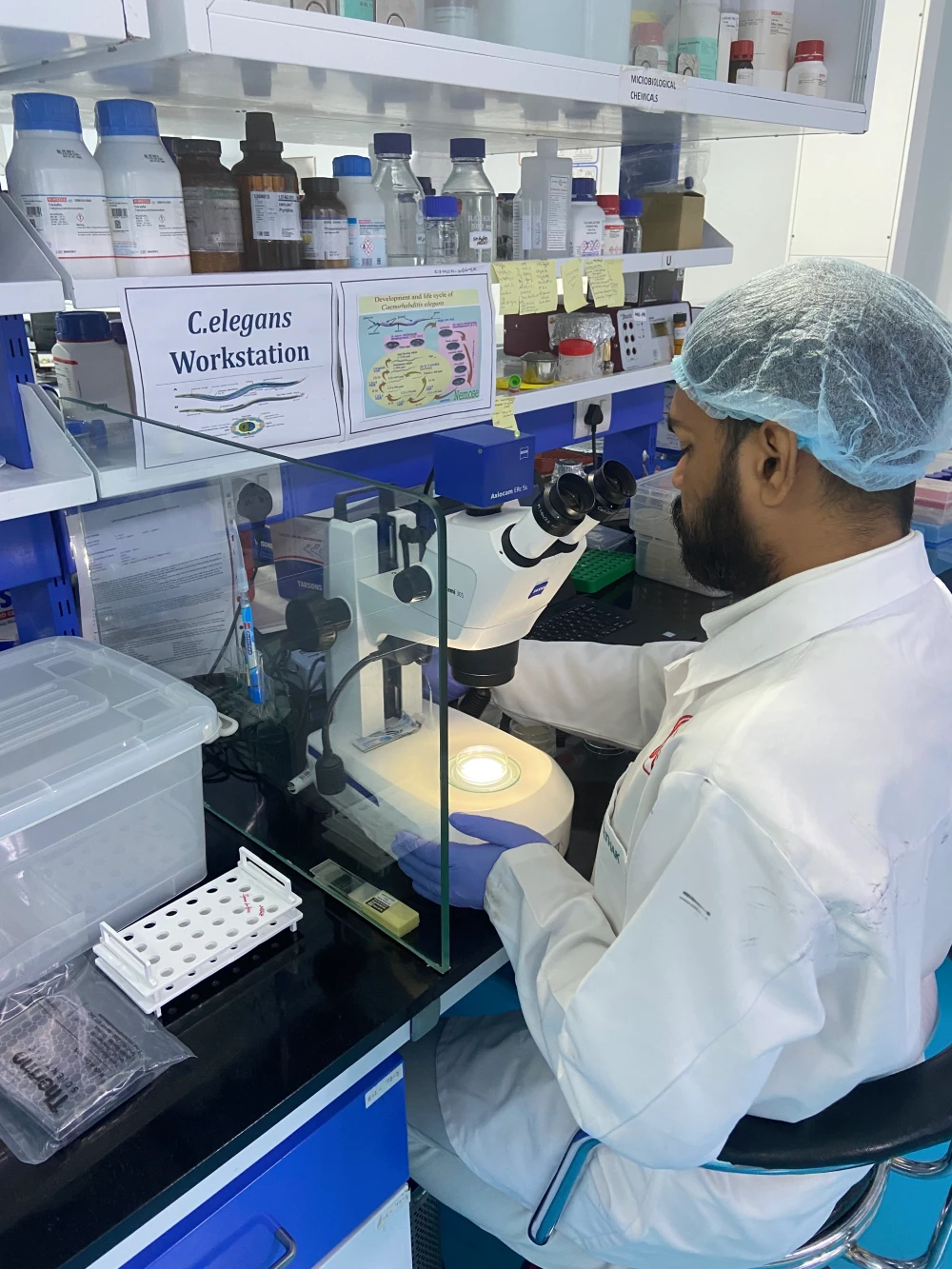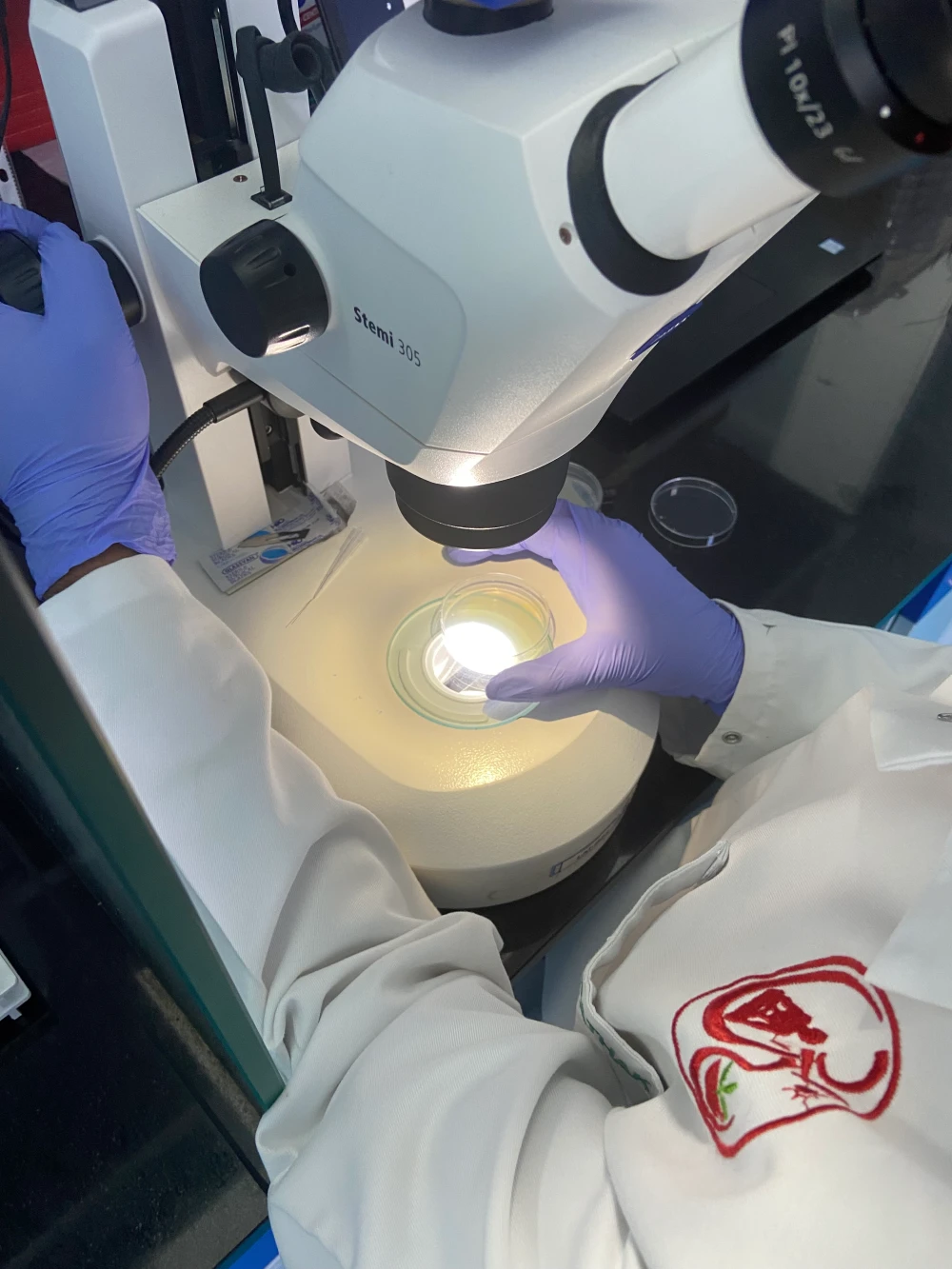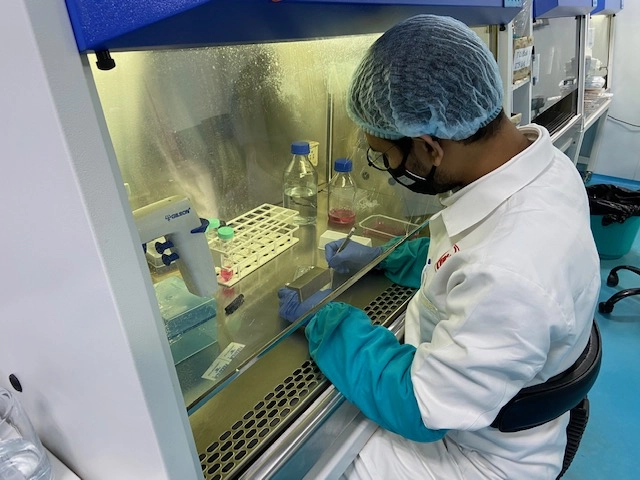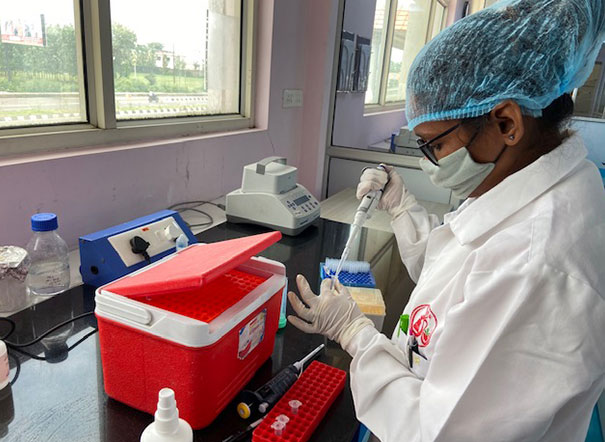In-Vitro and NABS
In-Vitro and NABS
Ayurveda promotes a healthy lifestyle by preventing and curing disease through plants, minerals and metals since thousands of years.
Our In-Vitro biology team aims to detect, classify and authenticate single herb, poly-herb and herbo-mineral formulations from Ayurveda via a comprehensive in-silico, cell-free and cell-based analysis. Our research focuses on providing scientific evidence, efficacy, pharmacological response and mechanism of action of Ayurvedic formulations.
At present, our department is engaged in finding solutions for diseases from various therapeutic areas like:
- Auto-immunity (arthritis)
- Pulmonology (COVID-19, asthma)
- Neurology (depression, Parkinson’s & Alzheimer’s disease)
- Cardiology (cardiac hypertrophy)
- Host-pathogen interactions
- Metabolism (fatty liver, obesity, diabetes)
- Endocrinology (hypothyroidism)
- Cancer
- Anti-ageing
The efficacy of Ayurvedic formulations is validated at the biochemical, cellular and molecular levels via an array of experiments.
- For biochemical analysis, we have developed a panel of wet lab enzymatic and cell free assays.
- At cellular levels, a series of well-established assays are performed for analysing cytosafety, oxidative stress, inflammation and modulation of disease specific markers.
- At molecular level, the beneficial effects of Ayurvedic formulations are analysed by studying the modulations occurring at transcriptional (mRNA) and translational (proteomics) levels.
Our scientists are also highly trained in performing in-silico modelling, de novo prediction, structure visualization, analysis and docking for analysis of phyto-molecules that specifically bind and target human proteins in specific disease pathologies.
To ensure, our research work is world-class and up-to-date, one of our aims is to develop various models in the nematode C.elegans. Because of evolutionary conservation of gene function and experimental tractability, C.elegans represents an ideal "model organism" to study basic genetic and molecular mechanisms of human development and disease. We want to integrate genetic, biochemical, and molecular biology tools with high-throughput genomic and proteomic approaches to achieve a mechanistic understanding of Ayurvedic medicines using C.elegans disease models. Team of Scientists from In-Vitro laboratory are expertise and skilful in working with C.elegans.


Nano-Ayurveda Biosciences (NABS)
Our team is also involved in studying the role of existing metal-based nanoparticles in their biological activities as well as, developing biologically safe polymeric nanodelivery and nanomedicine systems using environmentally safe green chemistry technology for enhancing the delivery and efficacy of Ayurvedic formulation with minimal side-effects.
Our equipments
We have a well-equipped and dedicated cell culture facility that maintains a high level of aseptic environment. We culture myriad of established and reporter cell lines, develop 3-D cell based disease models, isolate and maintain primary cells and utilize co-culture models for mimicking complex diseases.
The department is equipped with the following amenities:
- Cell culture facility with BSL-II laminar hood, hypoxia chamber, BOD chamber and CO2 incubators, upright and inverted microscope
- Flow-cytometer with imaging capability
- Instrumentation for gene expression analysis (GeneChip microarray, Nanostring®, UV/Vis spectrophotometer, PCR and RT-qPCR)
- Monochromator based multimode plate reader with dispenser facility
- Fluorescent microscope
- Instrumentation for protein expression analysis (Western and Southern-blot apparatus, chemiluminescent imager, Gel Doc, ELISA plate washer and tissue homogenizer)
- Particle size analyser, Probe sonicator and Water-bath sonicator.



